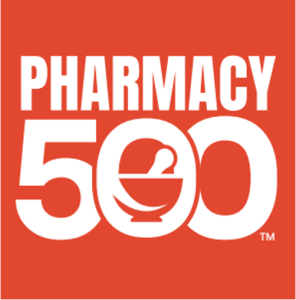Q. Specialty drugs remain the most expensive drugs on the market. What spending trends do you foresee for specialty pharmacy in the future?
Since the 1990s, the number of specialty drugs available has increased exponentially and dominated new drug developments. Specialty product spending growth is outpacing traditional product growth and now has approximately a 47% share of the total non-discounted spend.¹ As an example, in November 2019, specialty spend grew by 11.0% while traditional spend increased 0.7%. This increase has been fueled not only by approvals in more common “specialty” diseases such as oncology and hepatitis, but in rare or orphan diseases as well. We are beginning to see an increasing focus on specialty drug development for the treatment of diseases and conditions that were historically managed by small molecule therapies i.e., Alzheimer’s Disease, allergy, heart failure, stroke. In the next five years, oncology, autoimmune, and diabetes will drive therapeutic growth.
In 2018, 59 New Active Substances were launched, including 28 orphan NAS’s, resulting in the biggest year for new specialty product launches in history.²
The continued growth of specialty spending is driven primarily by the large number of new specialty and orphan drugs available and in the pipeline, as well as the rising prevalence of chronic diseases and an aging population.
Q: What are some of the biggest challenges faced by the specialty pharmacy industry in 2020?
Limited Distribution Networks restrict the distribution channel for a specialty drug to one or a very small number of pharmacies. This strategy has advantages and disadvantages. It may help ensure the safe distribution of high-risk drugs to small patient populations, but it limits competition among specialty pharmacies and creates access challenges for patients, payers, and healthcare providers.
Managed care access and carve-outs. Health plans and payers continue to limit access to participation in networks, as well as carve out and channel specialty drugs. Patients are forced to use specific specialty pharmacies, which can result in patients receiving medications from multiple pharmacies and not the pharmacy of their or their physician’s choosing. This can result in confusion and challenges for both patients and healthcare providers who struggle to navigate complex healthcare benefits.
Declining reimbursement rates and Direct and Indirect Remuneration (DIR) Fees. Though the specialty pharmacy industry has grown substantially, labor and drug costs have increased, and reimbursements from health insurers and pharmacy benefit managers (PBMs) continue to decrease. Another challenge faced by the specialty harmacy industry is Direct and Indirect Remuneration pharmacy fees, more commonly known as DIR fees. A loophole in the Medicare anti-kickback law allows health plans and PBMs to charge pharmacies fees to fill Medicare prescriptions. DIR fees are applied after the point-of-sale and collected months after the pharmacy has dispensed the drug and after a beneficiary has purchased the drug. Since 2013, fees on pharmacies have totaled $8.5 billion and have grown more than 1,600 percent ³. This is unsustainable and is pushing many independent pharmacies out of business. A recent report dated from June 2018 to July 2019 stated that more than 2,200 independent pharmacies have closed, with many directly blaming DIR fees as the reason.
Q. Can you identify some future trends in specialty pharmacy?
Targeted therapies. One of the major trends in specialty pharmacy is managing targeted therapies. Nearly 70 percent of the specialty drugs in development have an identified biomarker associated with them. Biomarkers help providers match patients with the best therapy right from the start and help manufacturers demonstrate just how successful their drugs can be. Biomarkers and genomics are used to personalize treatment regimens and determine precisely which medications are best suited for the patient, resulting in superior clinical and cost-effective outcomes. Specialty pharmacy can serve as an invaluable resource to help identify the optimal targeted therapy and further demonstrate the value they deliver as medication therapy experts, and also demonstrate why they are a critical member of the healthcare delivery team!
Value-based contracting. Greater emphasis will be placed on value-based contracting moving forward. Though managing the cost of specialty products has focused mainly on drug prices in the past, value-based contracting seeks to link the price of a drug to clinical or economic performance. Specialty pharmacies fulfill a key role in providing high-touch patient care and in the coordination of care with healthcare providers, resulting in improved outcomes. This type of contracting will require a great deal of collaboration, coordination, and some financial risk, but will focus on quality care and services as opposed to cost alone. This is another tremendous opportunity for specialty pharmacy to make a difference.
Drug pricing reform. Legislative and regulatory activity is underway to address the high cost of prescription drugs, including specialty drugs. Various policies under consideration would directly reduce drug costs at the point those drugs are sold – whether at the counter or being directly provided to a specialty patient. For specialty patients, payment reform referred to as “pharmacy DIR reform” would bring immediate relief to specialty patients, reducing a senior’s co-pay costs on expensive therapies that do not have generic alternatives. Pharmacy DIR reform ensures all pharmacy price concessions are used by a plan to reduce a Medicare patient’s upfront cost. This reform also would support specialty pharmacies in being able to ensure they can provide the support services needed to improve patient outcomes through drug management.
Q. How do you see the role of the specialty pharmacist evolving?
There is an active debate about giving pharmacists provider status under Medicare. This would allow pharmacists to be recognized and compensated for the services that they provide. Specialty pharmacists are an integral part of the patient’s overall healthcare team and help facilitate complete communication between the care team and the patient. They can play a larger role in advising care and working alongside physicians and nurses on prescribing decisions and assisting with the transition of care. Their specialized training in chronic conditions can lead to impactful interventions, and reductions in hospitalizations and unnecessary healthcare costs.
Q. What is the role and the future of technology in specialty pharmacy?
Specialty pharmacy technologies will continue to improve communication and engagement with patients and caregivers, improve workflows, drive adherence and improved clinical management, and identify medication safety and risk, which will demand improved dialogue between pharmacies and prescribers. Improved communication with patients and prescribers could significantly reduce medication mismanagement, potential side effects, and the risk of adverse drug events. As technology continues to advance, more data and information is shared between the entire healthcare team, including health plans, pharmacy benefits managers, providers, and manufacturers. This team approach will ultimately result in improved patient care and outcomes.
Q. Is there anything else you’d like to add that you haven’t already covered?
With all of this in mind, it is essential that we do not lose sight of the fact that the patient is at the center of all we do. Specialty pharmacies are vital members of the patient’s healthcare team and will continue to evolve as needed to provide the optimal model of care for patients living with chronic illnesses and complex medical conditions, achieve superior clinical and economic outcomes, and expedite patient access to care.
[1] IQVIA, National Sales Perspectives, November 2019
[2] IQVIA Institute, April 2019
BIOGRAPHY | Sheila Arquette, RPh Executive Director, National Association of Specialty Pharmacy

Sheila Arquette is the Executive Director of the National Association of Specialty Pharmacy. She holds a Bachelor of Science degree in Pharmacy from the State University of New York at Buffalo School of Pharmacy. She has extensive practical and leadership experience in retail pharmacy, hospital pharmacy, long-term care consulting and dispensing, in addition to managed care, PBM operations, and specialty pharmacy. She is a regular speaker and participant at national pharmacy conferences, roundtables, and industry meetings.
Sheila has been appointed to the University of Pittsburg’s Master of Science in Pharmacy Business Administration (MSPBA) Executive Steering Board and is the host of the NASP Podcast on the Pharmacy Podcast Network. Sheila was elected to the NASP Board of Directors and received the NASP Distinguished Service Award in September 2016. She also is a long-standing member of AMCP.







